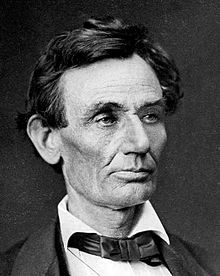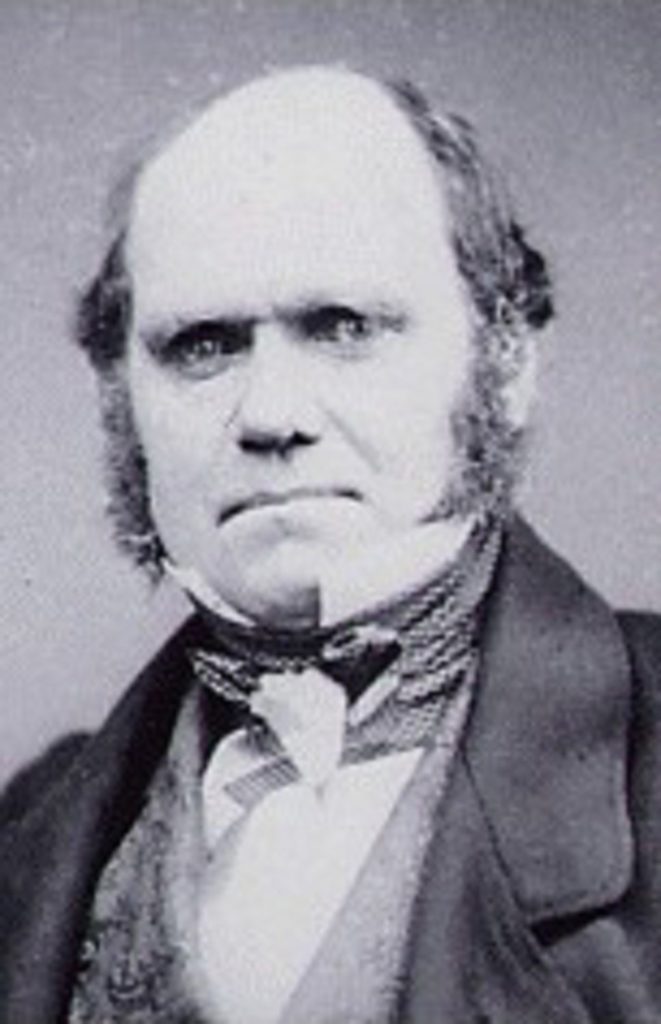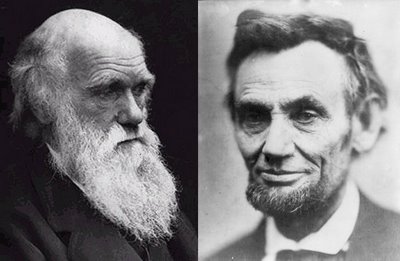Today two of my most cherished heroes celebrate their 200th birthday. Charles Darwin and Abraham Lincoln were both born on February 12, 1809. Neither man was especially popular during his lifetime. Both were often caricatured as apes, although for different reasons: Darwin because evolution challenged literal interpretations of the Bible; Lincoln because he was tall, rough-hewn, and not photogenic.
Lincoln may be remembered as our greatest President, but he was also one of America’s most persistent political losers. He lost eight elections, twice failed in business, and suffered a nervous breakdown that kept him in bed for six months following the death of his sweetheart. He was born poor and remained indebted or bankrupt most of his life. He shared a personal modesty, preference for results over form, and modest circumstances with Ulysses S. Grant who became his favorite general. Unfortunately the two men married women who could not abide each other, so the Grants declined the invitation to join the Lincolns at Ford’s Theater five days after the end of the Civil War. Grant never forgave himself because as a Lieutenant-General in the Army he had a team of bodyguards with him at all times, unlike the President. He assumed for the rest of his life that his men would have prevented John Wilkes Booth from shooting Lincoln.
 Lincoln was as unlikely a politician as Darwin was a Botanist. His political career was a series of disasters. As a young man, he ran for election to the Illinois state legislature in 1832 and lost. Elected in 1834, he sought the speakership and lost, sought to become elector in 1840 and lost, ran for Congress in 1843 and lost. He was elected to Congress in 1846 but lost his bid for reelection in 1848. Ran for the job of “land officer” back home and lost. Ran for Senate in 1854 and lost. Sought the Vice Presidential nomination in 1858, when VPs were still nominated separately and received fewer than 100 votes. So he ran for the Senate again, gave his “house divided cannot stand” and held forth eloquently against slavery in the now famed Lincoln-Douglas debates. He lost. In 1860, the Republicans nominated him for President in an act of desperation. They knew that he was a loser but picked him to avoid a candidate who was known to be anti-slavery like Seward and other more obvious leaders. Lincoln did not campaign for President — literally did not raise a dime or give a single speech. He was elected anyway and the rest, as they say, is history.
Lincoln was as unlikely a politician as Darwin was a Botanist. His political career was a series of disasters. As a young man, he ran for election to the Illinois state legislature in 1832 and lost. Elected in 1834, he sought the speakership and lost, sought to become elector in 1840 and lost, ran for Congress in 1843 and lost. He was elected to Congress in 1846 but lost his bid for reelection in 1848. Ran for the job of “land officer” back home and lost. Ran for Senate in 1854 and lost. Sought the Vice Presidential nomination in 1858, when VPs were still nominated separately and received fewer than 100 votes. So he ran for the Senate again, gave his “house divided cannot stand” and held forth eloquently against slavery in the now famed Lincoln-Douglas debates. He lost. In 1860, the Republicans nominated him for President in an act of desperation. They knew that he was a loser but picked him to avoid a candidate who was known to be anti-slavery like Seward and other more obvious leaders. Lincoln did not campaign for President — literally did not raise a dime or give a single speech. He was elected anyway and the rest, as they say, is history.
Darwin was raised in an affluent household and trained in medicine, which he disliked. Inspired by the truly incredible travels of Alexander von Humboldt, he studied Geology and became enough of a naturalist that he was able to join Robert FitzRoy, the captain of HMS Beagle, in the unpaid position of gentleman’s companion on an expedition to chart the coastline of South America.
Darwin’s actual training in botany and other natural sciences was modest — he had briefly indulged in the upper crust fashion of beetle collecting and had learned a bit of taxidermy after leaving medical school. (His taxidermy teacher was John Edmonstone, a freed black slave who also helped inspire Darwin’s interest in South America with exciting tales of the rain forest. Later, in The Descent of Man, Darwin used this experience as evidence that “Negroes and Europeans” were closely related despite superficial differences in appearance.
 The Beagle survey took five years. Darwin spent two-thirds of it on land. His careful observations and methodical collection of specimens and fossils made huge and immediate scientific contributions. Many of these were related not to botany but to geology — the subject of his deepest expertise. For example, he realized that the stepped plains of shingle and seashells in Patagonia were raised beaches and after experiencing an earthquake in Chile, he observed mussel-beds stranded above high tide showing that the land had just been raised. High in the Andes he saw several fossil trees that had grown on a sand beach, with seashells nearby. He theorized that coral atolls form on sinking volcanic mountains, and confirmed this when the Beagle surveyed the Cocos (Keeling) Islands.
The Beagle survey took five years. Darwin spent two-thirds of it on land. His careful observations and methodical collection of specimens and fossils made huge and immediate scientific contributions. Many of these were related not to botany but to geology — the subject of his deepest expertise. For example, he realized that the stepped plains of shingle and seashells in Patagonia were raised beaches and after experiencing an earthquake in Chile, he observed mussel-beds stranded above high tide showing that the land had just been raised. High in the Andes he saw several fossil trees that had grown on a sand beach, with seashells nearby. He theorized that coral atolls form on sinking volcanic mountains, and confirmed this when the Beagle surveyed the Cocos (Keeling) Islands.
While organizing his notes on his trip home, Darwin wrote that if his growing suspicions about mockingbirds and tortoises from the Galapagos having evolved different features depending on the island they were stranded on were correct, “such facts undermine the stability of Species”. He later wrote that such facts “seemed to me to throw some light on the origin of species”. That these insights, and the many that followed with the publications of his work, should come not from a scientist saturated in scholarly (and religious) orthodoxy but from an open-minded observer who collected real facts and thought scientifically about what the evidence was telling him has always made for a story that is to me as compelling in its own way as Lincoln’s.






